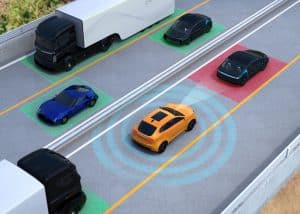
Rutgers University and the New Jersey DOT will monitor data from new automotive sensors to launch initiatives to improve traffic management and protect vulnerable citizens.
The New Jersey Department of Transportation will partner with Rutgers University to develop a testing ground for new ways to study mobility. The partnership will expand data gathering, analysis, and sharing for mobility, a vital metric for traffic monitoring and intelligent city planning.
Using the latest generation sensor
New Brunswick, New Jersey, will see the installation of several lidar sensors at multiple intersections. These sensors monitor traffic data, sending real-time analytics to help planners ease traffic congestion, reduce traffic incidents, and improve flow.
It’s not the first time cities have utilized IoT to pursue more efficient and safer cities. Still, this partnership marks another step in leveraging new technology such as machine learning and IoT sensors to create a realistic picture of what happens with mobility.
See also: The Killer App for Autonomous Cars: Airport Parking
Sensors use 3D mapping
The purpose of installing lidar sensors is to create 3D maps of traffic flow in real-time. As traffic patterns change, these maps provide highly accurate models with no lag or setbacks. New Brunswick joins several other cities in using this technology and hopes to protect people even as cities grow.
Municipalities should be able to pivot traffic strategies based on the latest data. As these initiatives prove successful, they could make it much easier for cities to adopt smart strategies to manage internal mobility.
Lidar sensors read pulsed light waves, creating dynamic data that goes beyond traditional radar or video methods. These sensors convert data into information about trajectory and might shed more light on why certain backups occur, for example, or the reason behind certain intersections experiencing more incidents.
Building safer cities
AI-powered traffic monitoring could unlock smarter ways to plan infrastructure and reconfigure outdated models for cities experiencing growth. It could also bring these capabilities to smaller cities with fewer resources, helping transform the concept of a smart city from a dream to a reality.
The partnership will work through Rutger’s Center for Advanced Infrastructure and Transportation. From there, the city and the university will monitor the data to launch new initiatives to improve traffic and protect vulnerable citizens.




























